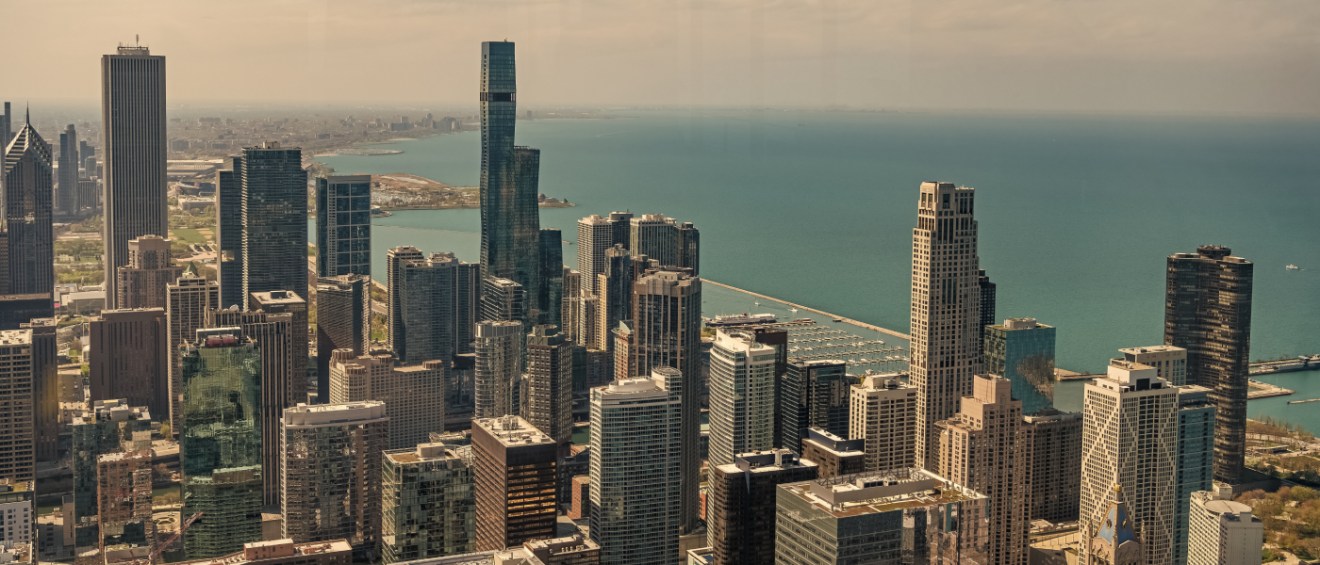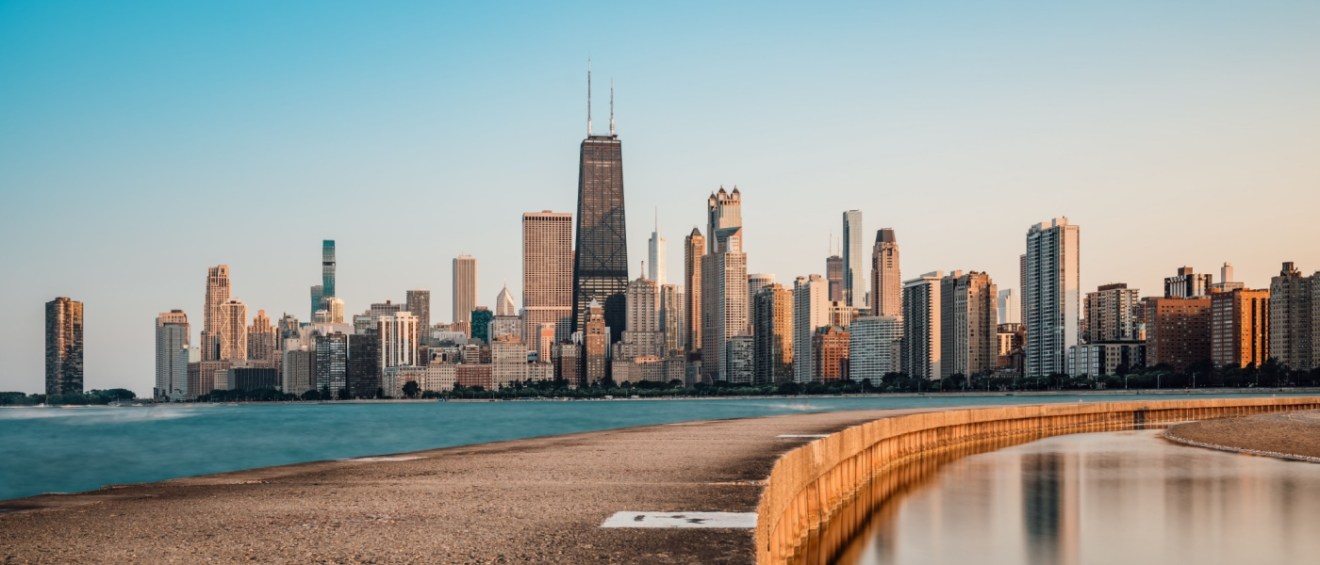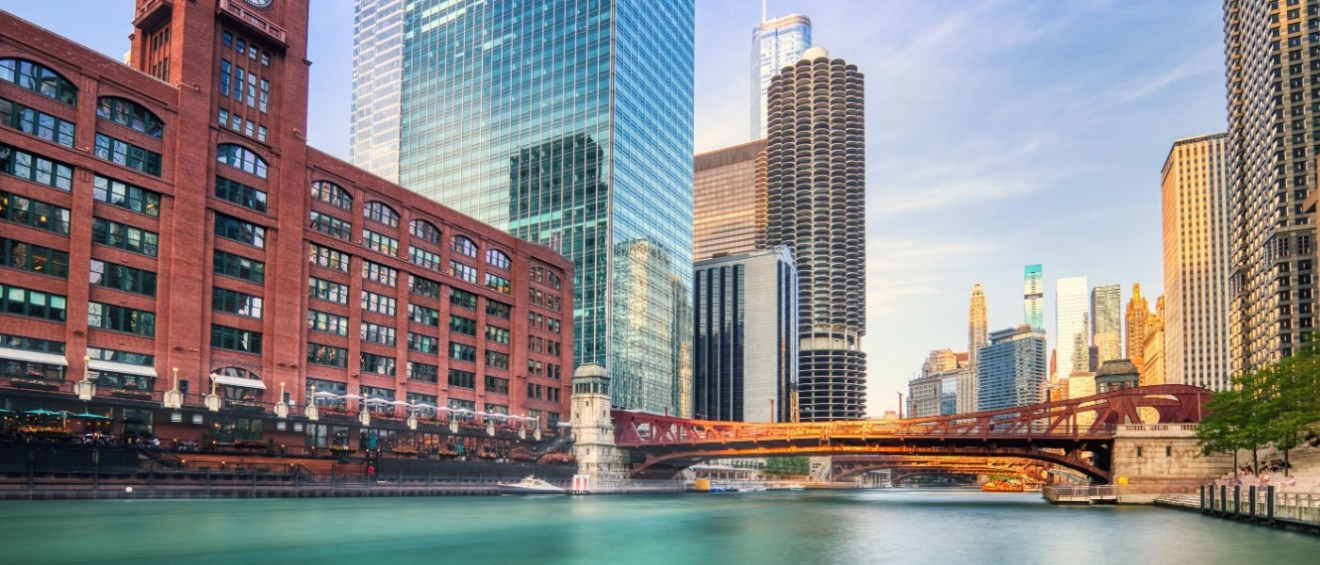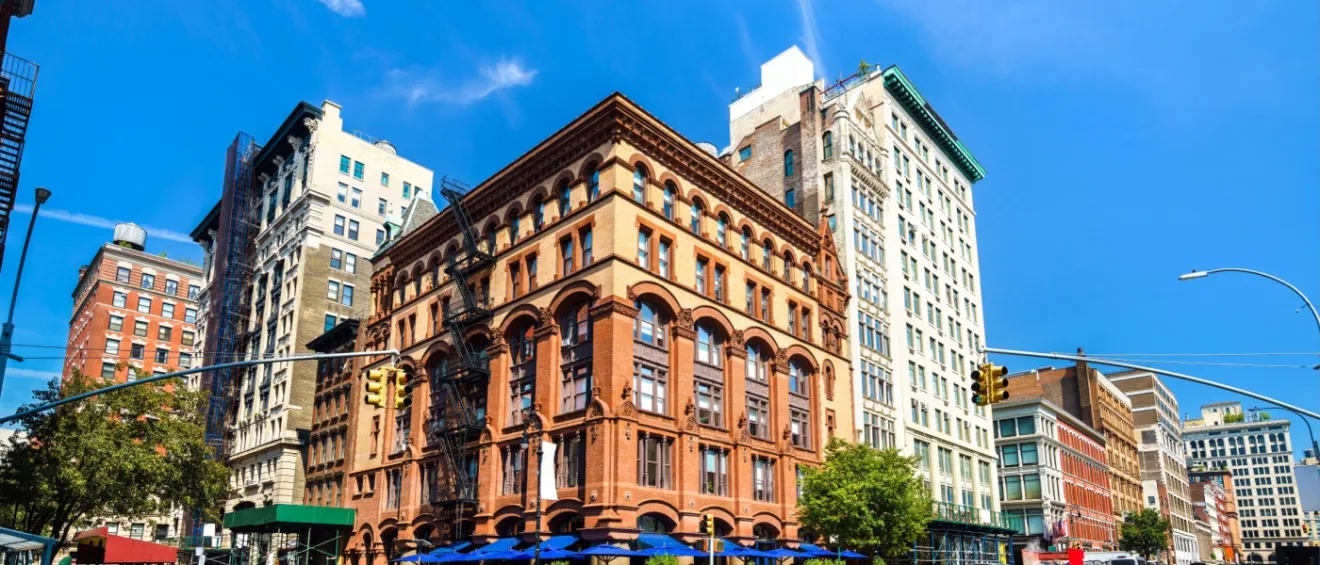Share this article:
If you’re thinking about moving to Chicago, you’re not alone: In 2025, the city continues to attract renters from all across the country thanks to its mix of big-city energy and relatively affordable rental market. Plus, compared to cities like New York or San Francisco, apartments in Chicago offer more space for the money — and often come with better access to parks, museums and public transit.
Chicago is known for its diverse economy and cultural opportunities, which make it a draw for professionals, students and families alike. From the art scene in Pilsen to the shopping in Wicker Park, each neighborhood brings something different to the table. Furthermore, the city’s location along Lake Michigan offers a rare mix of urban living and outdoor recreation, whether you’re into bike rides on the Lakefront Trail or free concerts in Millennium Park. And, with a reliable public transit system operated by the Chicago Transit Authority (CTA), many renters choose to skip the car altogether, especially with train and bus lines connecting nearly every part of the city.
But, before you sign a lease on an apartment in Chicago, it’s smart to ask the right questions. Whether you’re new to the city or have rented here before, these five questions can help you avoid surprises and make sure the rental fits your lifestyle:
- Heating during harsh winter
- Risk of basement flooding
- Noise ordinances
- Public transportation in the area
- Upcoming infrastructure projects
1. How is heating provided during Chicago’s harsh winters, and are there any supplemental heating costs I should expect?
Chicago winters are no joke. Temperatures here often dip well below freezing and wind chills can be brutal. That’s why heating is more than just a comfort — it’s essential. Before renting, ask the landlord or property manager how the apartment is heated. Some buildings use central boilers with radiator heat, while others rely on electric baseboards or individual gas furnaces.
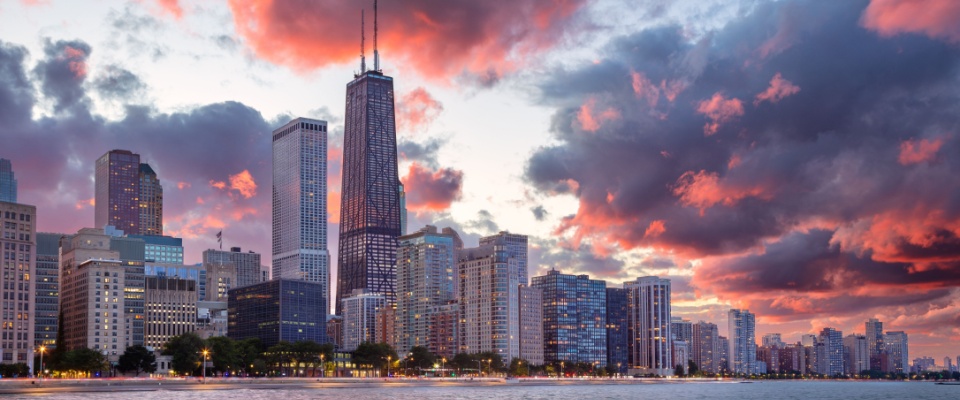
Also ask whether the cost of heating is included in the rent or billed separately. In older buildings, it’s common for heating to be covered in the rent, whereas newer or renovated units may leave tenants responsible for their own gas or electric bills. If it’s the latter, be sure to factor that into your monthly budget — especially during peak winter months, when heating costs can spike.
2. Has the building ever experienced basement flooding during Chicago’s heavy spring rains?
Chicago’s flat landscape and proximity to Lake Michigan mean that flooding can be an issue, particularly in low-lying areas or during heavy spring rainstorms. So, if you’re considering a garden-level or first-floor apartment, it’s especially important to ask about the building’s flood history.
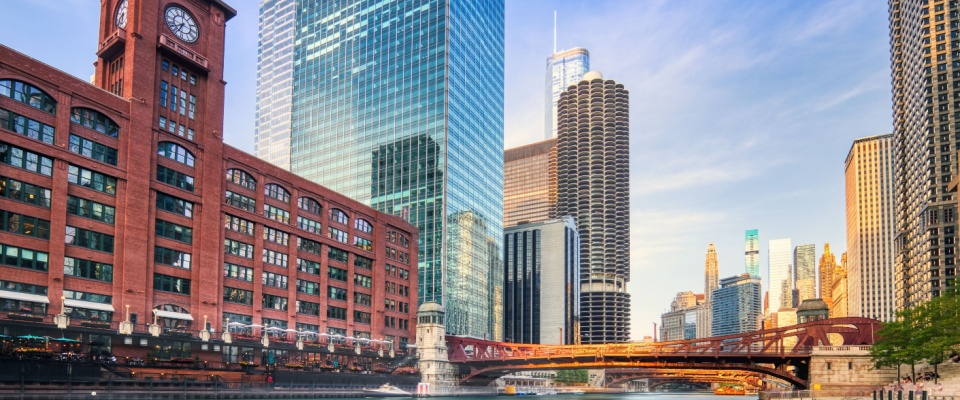
Even if there hasn’t been a major flood event, find out what mitigation measures the property has in place, such as sump pumps, drain tile systems or sealed foundations. This is a big deal not just for your comfort, but also for the safety of your belongings. Moreover, certain neighborhoods near the river or lakefront — like Albany Park or Rogers Park — may have a higher flood risk, so do your homework on the area before signing a lease.
3. Are there any noise ordinances or local regulations specific to this Chicago neighborhood that affect renters?
Chicago is made up of more than 70 neighborhoods, each with its own personality and pace of life. Some areas — like Wrigleyville or Logan Square — are known for their nightlife and frequent street festivals. That can be a major perk if you love the buzz of city life, but it can also bring noise and parking headaches.

To that end, ask your landlord or leasing agent about local noise regulations and whether the area frequently hosts public events. In some cases, residential streets may be blocked off or experience heavy foot traffic on weekends. Knowing this upfront can help you decide if the location fits your lifestyle, especially if you work from home or value a quiet living space.
4. Is the apartment located near a CTA train or bus stop, and how reliable is public transportation service in this area?
One of the top reasons people look for apartments for rent in Chicago is the city’s public transportation system. The CTA offers both train (“L”) and bus services that can get you almost anywhere in the city. That said, some neighborhoods are better connected than others.
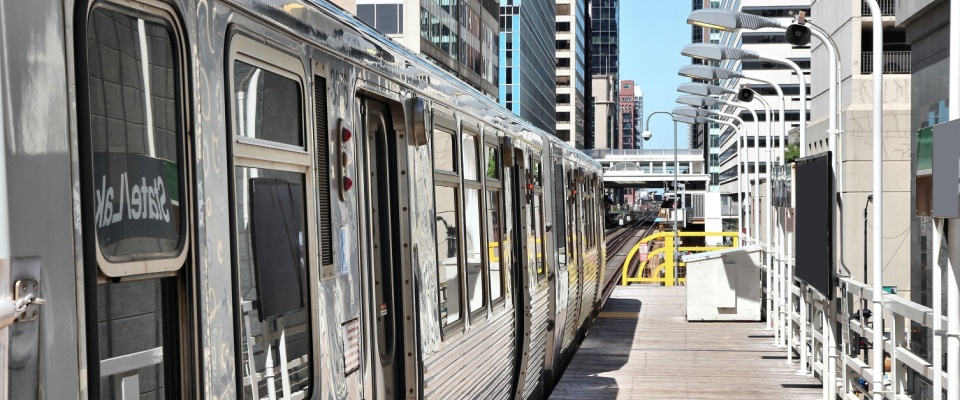
So, when visiting a potential apartment, check how far the nearest CTA stop is as walking distance to a train station is a huge plus if you don’t have a car. You’ll also want to ask how frequently the buses or trains run, especially during off-peak hours or on weekends. While apps like the CTA’s Train Tracker can help you gauge reliability, nothing beats asking current tenants or neighbors about their day-to-day experience.
5. Are there any upcoming city infrastructure projects or construction nearby that might affect noise, traffic or access?
Chicago is a city in constant development. While that’s great for long-term growth, it can mean temporary headaches for nearby residents. Ongoing construction projects (like road repaving, bridge repairs or high-rise developments) can bring noise, dust and limited street access.
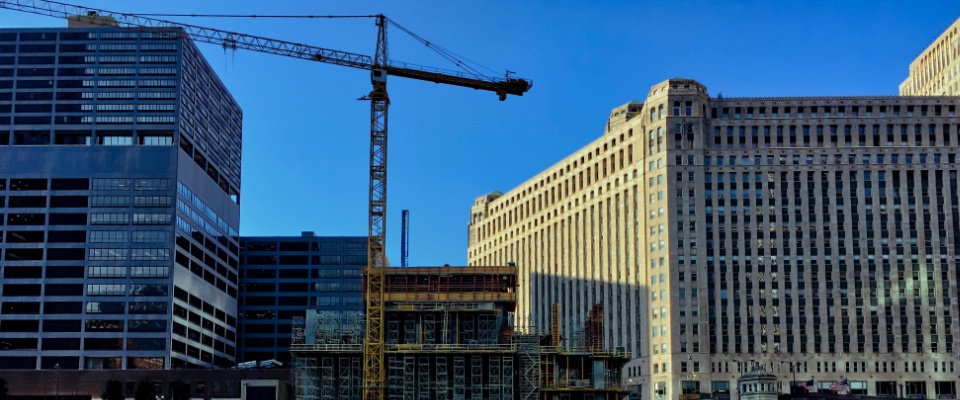
Before committing to a lease, ask if the landlord is aware of any upcoming projects nearby. You can also check the City of Chicago’s construction project map online to get an idea of what might be coming. Knowing about future disruptions can help you avoid unpleasant surprises after move-in day.
Finding the right rental apartment in Chicago takes more than just browsing listings. By asking smart questions and doing your homework on the neighborhood and the building itself, you can avoid costly mistakes and settle into a home that fits your needs.
If you’re ready to start your search for apartments in Chicago, keep these tips in mind and take your time touring different areas. From Lakeview to Bridgeport to Avondale, there are plenty of affordable neighborhoods in Chicago with great options. Whether you’re after a studio or something more spacious, you’ll find that apartments for rent in Chicago offer a solid mix of value, location and amenities.
Share this article:
Adina Dragos is a real estate writer and research analyst with RentCafe. She has solid experience in real estate writing, covering topics ranging from best cities for renters and the top cities for rental activity to cost of living. Her work was featured in several prominent media channels such as Axios, The Dallas Morning News, ConnectCre and The New York Times.
The Ready Renter has your back
Tips, news, and research curated for renters, straight to your inbox.




Related posts
Subscribe to
The Ready Renter newsletter


